Young people receive their data from space and Astro Pi certificates
Across Europe and beyond, teams of young people are receiving data from the International Space Station (ISS) this week. That’s because they participated in the annual European Astro Pi Challenge, the unique programme we deliver in collaboration with ESA Education to give kids the chance to write code that runs in space.
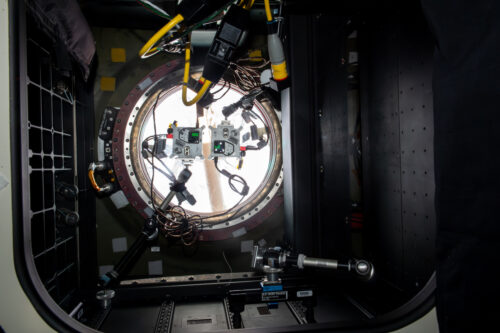
In this round of Astro Pi, over 26,400 young people took part across its two missions — Mission Space Lab and Mission Zero — and had their programs run on the Raspberry Pi computers on board the ISS.
Mission Space Lab teams find out the speed of the ISS
In Mission Space Lab, we asked young people to team up and write code to collect data on the ISS and calculate the speed at which the ISS is travelling. 236 teams wrote programs that passed all our tests and achieved flight status to run in space. And not only will the Mission Space Lab teams receive their participation certificates this week — they’ll also receive the data their programs captured on the ISS.

Many teams chose a feature extraction method to calculate the ISS’s speed, identifying two points on Earth from which to calculate the distance the ISS travelled over time. Using this method means using the high-quality camera on the Astro Pi computer to take some fantastic photos of Earth from the ISS’s World Observation Research Facility (WORF) window. Teams will receive these photos soon, which are unique views of Earth from space.
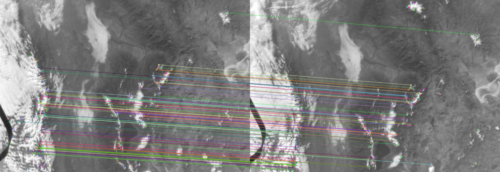
How fast does the ISS travel?
The actual speed that the ISS is travelling in space while at normal altitude is 7.66km/s. Its altitude can affect the speed, so it can vary, but the ISS’s boosters fire up if it dips too low.
To help teams with writing programs that can adapt to some of these variances, and to show them the type data they can collect, we gave them a programming tool we call Astro Pi Replay. Using this tool, teams can simulate how their program would run on the Astro Pi computers up in space.

This is the first time we asked Mission Space Lab teams to focus on a particular scientific question. So how did they do? The graph below shows some of the speeds that teams’ programs estimated.
As you can see, a variety of speeds were estimated, but the average is fairly close to the ISS’s actual speed. Teams did a great job trying to solve the question and working like real space scientists. Once they receive their data this week, they can check how accurate their speed estimate was.
Mission Zero pixel art lights up astronauts’ daily tasks
In Astro Pi Mission Zero, a coding activity suitable for beginners, 16,039 teams of young people created code to make pixel art inspired by nature. Nearly half (44%) of the 24,409 participants were girls! 15,942 of the Mission Zero teams had their code run on the ISS after we checked that it followed the rules.
Every team whose program ran on the ISS — with their pixel art showing for the astronauts to see as they worked — will receive certificates with the time, date, and location coordinates of their Mission Zero run.
We’ve been so impressed with this year’s pixel art creations that we’ve picked some as new examples for next year’s Mission Zero coding guide. That means young people will be able to choose one of a few pixel images to start with and recreate or remix them for their program. More info on that is coming soon, sign up to the Astro Pi newsletter to not miss it.
Let’s get ready for September
Thank you and congratulations to everyone who took part in the missions this year, and our special thanks to all the amazing educators who ran Astro Pi activities with young people.

For us, there is much to reflect on and celebrate from this year’s challenge. We’ve had the chance to run Mission Zero with young people in person and identify a few changes to help make the activity easier. As Mission Space Lab now involves simulating programs running on the ISS with our new Astro Pi Replay tool, we’ll be exploring how to improve this as well.
We hope to engage lots of previous and new participants in the Astro Pi Challenge when it starts up again in September. Sign up for the newsletter on astro-pi.org to be the first to hear about the new round.

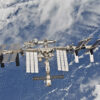

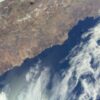
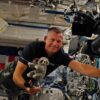
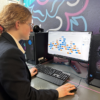
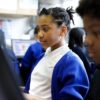
No comments
Jump to the comment form